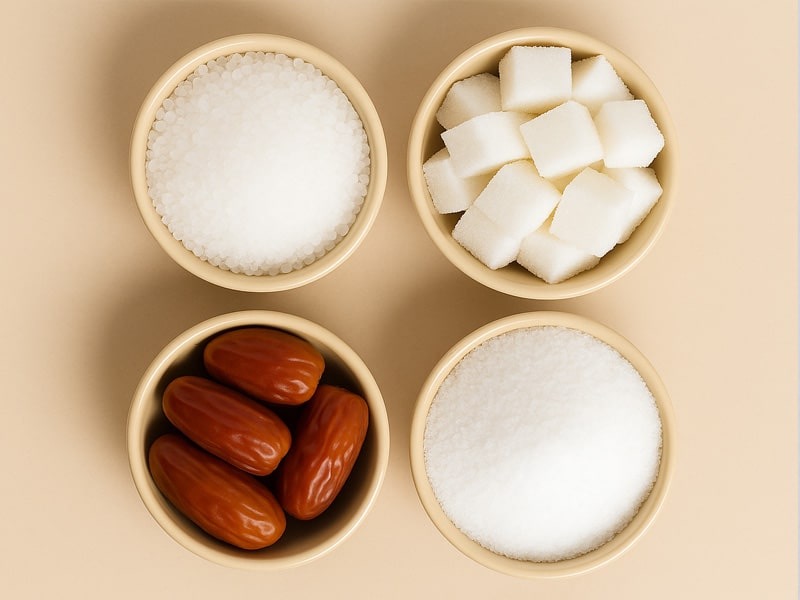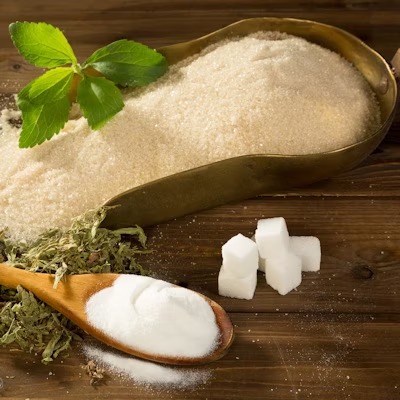Views: 222 Author: Sara Publish Time: 2025-10-20 Origin: Site








Content Menu
● Emerging Concerns About Cardiovascular and Brain Health
● Safety and Digestive Tolerance
● Practical Recommendations for Consumers and Manufacturers
>> 2. Is erythritol safe for diabetics?
>> 3. Can erythritol cause heart or brain vascular problems?
>> 4. Does erythritol cause digestive issues?
>> 5. How can I safely consume erythritol?
Erythritol is a sugar alcohol commonly used as a low-calorie sweetener in many sugar-free and reduced-sugar products including beverages, snacks, and nutritional bars. It is widely marketed as a healthier substitute for sugar due to its minimal impact on blood glucose and insulin levels, making it popular among diabetics and health-conscious consumers. However, recent scientific research has raised important questions about its safety, especially regarding cardiovascular and brain vascular health.

Erythritol is a naturally occurring sugar alcohol found in certain fruits and fermented foods. Industrially, it is produced by fermenting glucose with yeast or fungi. It has about 60-80% the sweetness of sucrose but almost zero calories. Because erythritol is almost completely absorbed in the small intestine and rapidly excreted unchanged in the urine, it typically causes fewer gastrointestinal issues than other sugar alcohols such as sorbitol or xylitol.
- Low-calorie: Provides sweetness with minimal calories, helpful for weight management.
- Does not raise blood sugar or insulin: Safe for people with diabetes or insulin resistance.
- Dental friendly: Unlike sugar, it does not promote tooth decay.
- Well tolerated: Generally causes fewer gastrointestinal side effects than other polyols.
These attributes have made erythritol a popular ingredient in many food and beverage products, especially in the health and wellness market.
While erythritol was traditionally considered safe, accumulating evidence from recent studies suggests potential risks, especially when consumed in higher or frequent amounts.
- A 2025 study from the University of Colorado Boulder treated human brain blood vessel cells with erythritol at levels equivalent to a single beverage serving and found increased oxidative stress and reduced production of nitric oxide (NO), a molecule essential for blood vessel relaxation and dilation. Reduced NO and increased production of endothelin-1, a vasoconstrictor protein, may impair blood flow and increase vascular constriction. The same study showed impaired release of tissue-type plasminogen activator (t-PA), a natural clot-busting agent, indicating a reduced ability to break down blood clots. These changes heighten stroke risk by promoting vessel narrowing and clot formation.
- Epidemiological research measuring blood erythritol levels in adults has linked higher erythritol concentrations with increased major adverse cardiovascular events (MACE) such as heart attacks and strokes. Mechanistic studies demonstrated that erythritol enhances platelet activation and aggregation, increasing clot formation potential. Erythritol exposure increased platelet calcium levels and activation markers like P-selectin and glycoprotein IIb/IIIa, both critical in clot formation.
- Some studies differentiate between endogenous erythritol levels—the body's natural production—and dietary intake. Nonetheless, with rising erythritol use in foods, dietary intake may contribute to elevated circulating levels influential in cardiovascular risk.

Most people tolerate erythritol well at normal consumption levels, typically experiencing minimal gastrointestinal symptoms compared to other polyols. The approximate tolerance limit for erythritol is about 0.66 to 0.80 grams per kilogram of body weight, with side effects like bloating or nausea rare below this threshold.
Consumers who ingest large amounts, such as multiple servings of erythritol-sweetened products daily, may potentially face higher risks associated with oxidative stress and clotting.
- Moderation is crucial: Until long-term studies clarify erythritol's cardiovascular safety, limiting daily intake, especially from processed foods and beverages, is advisable.
- Monitor ingredient labels: Look for erythritol or "sugar alcohol" on product packaging to manage total consumption.
- Consider blending natural sweeteners: Combining erythritol with other natural sugars or sweeteners may reduce total erythritol intake while maintaining sweetness.
- For manufacturers, optimizing product formulations with balanced sweetener profiles can improve health benefits and consumer safety perception.
Erythritol provides an attractive low-calorie, tooth-friendly alternative to sugar with advantageous effects on blood glucose control. However, recent rigorous scientific findings indicate that erythritol, at levels typical of common consumption, may increase oxidative stress in brain vascular cells, alter blood vessel function, and promote blood clot formation. These biological changes could raise the risk of stroke and other adverse cardiovascular outcomes, prompting caution for those consuming high amounts regularly. More expansive human studies are needed to fully understand the long-term health impacts. In the meantime, consumers and manufacturers should approach erythritol use with balanced moderation.

Erythritol is a sugar alcohol used as a low-calorie sweetener found naturally in some fruits and manufactured commercially by fermentation of sugars.
Yes, erythritol does not raise blood glucose or insulin levels, making it safe for people with diabetes and insulin resistance.
Recent studies show erythritol may impair blood vessel dilation, increase oxidative stress, and enhance blood clotting, potentially raising risks of heart attack and stroke, especially with high or frequent intake.
Compared to other sugar alcohols, erythritol is generally better tolerated, with fewer gastrointestinal side effects at typical consumption levels.
Consume erythritol in moderation, avoid excessive intake from processed foods and drinks, read ingredient labels carefully, and consider mixing with other natural sweeteners for balanced sweetness.
[1](https://www.physiology.org/detail/news/2025/04/25/popular-sugar-substitute-may-harm-brain-and-heart-health)
[2](https://academic.oup.com/cardiovascres/article/121/9/1319/8153562)
[3](https://www.ahajournals.org/do/10.1161/blog.20250424.402076)
[4](https://www.colorado.edu/today/2025/07/14/common-sugar-substitute-shown-impair-brain-cells-boost-stroke-risk)
[5](https://pubmed.ncbi.nlm.nih.gov/40444390/)
[6](https://www.sciencedaily.com/releases/2025/07/250718035156.htm)
[7](https://www.sciencedirect.com/science/article/pii/S2772963X25000225)
[8](https://www.henryford.com/Blog/2025/01/Artificial-Sweeteners-And-Stroke-Risk)
[9](https://pubmed.ncbi.nlm.nih.gov/40459966/)
